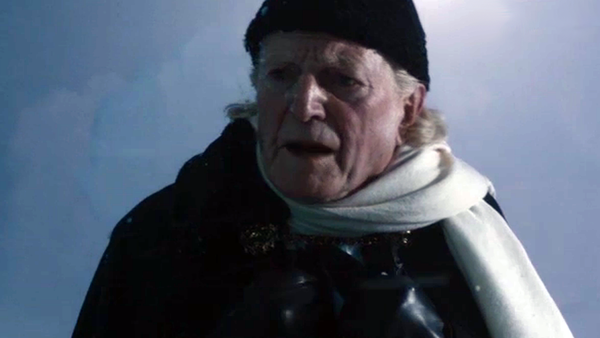Doctor Who Christmas Special 2017: What ‘Twice Upon A Time’ Really Means
All the major talking points from Peter Capaldi's final Doctor Who Adventure.

Christmas would have been the perfect cover for making Twice upon a Time an over-indulgent and unashamed celebration of the outgoing producer’s greatest hits, but there wasn’t even a single Weeping Angel in sight. Instead, Steven Moffat closed the curtain on his and Peter Capaldi’s stint with the most reflective Doctor Who story to date.
By eschewing artificial distinctions of classic versus modern with the 709 episodes later caption, and by foreshadowing throughout the innovations to come under Chris Chibnall and Jodie Whittaker, Twice upon a Time is a self-effacing exercise in continuity.
There had been rumours that the episode might tie in directly to Moffat’s tour de force adventure, The Day of the Doctor, in which Capaldi had made his eye catching and fleeting debut. Instead inspiration came from one of Moffat’s least talked about episodes, Into the Dalek, in the form of the only good Dalek. Rusty was an unexpected, left of field addition but fitted in perfectly with the introspective nature of this story.
Once again we encounter the Twelfth Doctor wrestling with questions of identity and purpose, as his era ends in the same way in which it had begun in series eight. Such is the Doctor’s malaise following the horrific events of The Doctor Falls that he is quite prepared to die by refusing to regenerate. The entire plot focuses on the Doctor learning to embrace his place in the universe, even if rather ominously he chooses to regenerate for just ‘one more time’.
10. The Original You Might Say?

It was certainly a risky move to write Capaldi’s final story as a multi-doctor affair. Some were understandably concerned that Bradley’s take on the First Doctor might steal the limelight from Capaldi. But the unlikely team-up provides scope for drawing out the distinctive qualities of the Doctor’s twelfth persona. Yes, the First almost verges on an unfair caricature, but he is representing an old school approach, the kind most resistant to Jodie Whittaker’s casting.
Was the First Doctor really that unenlightened? Certainly not (no more so than Troughton or Pertwee), but he never really called out prejudices as directly as the Twelfth Doctor (see for instance Thin Ice). At a stretch we could propose a story-based reason for his excesses here. He is resisting change, refusing to accept his distant successor, so his over the top sexism may be symptomatic of the struggle of tradition over progress and the familiar over the new. Alternatively, the distorted personality, like his face being ‘all over the place’, could be explained as a side-effect of the regeneration process.
The friction between one and twelve is not all about the conservative versus the liberal, and the Twelfth Doctor doesn’t always fare better than his predecessor. There are some wonderful moments in which the First Doctor expresses surprise at the person he has become. He cannot get his head around the revelation that he is destined to be the Earth’s protector and is horrified by the thought of one day being known as the Doctor of War. In the Three Doctor’s the ‘original’ is depicted as the wisest of the three, chastising the others for missing the obvious. He does the same here by pointing out the asymmetry of the glass hologram and by being the first to discover that Bill is the Testimony.